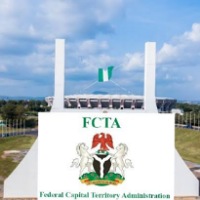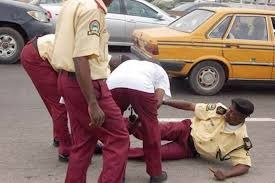Motoring
Czechs beats Poland to Win $1.1 Billion Investment by Nexen Tire

LONDON – The Czech Republic has beaten Poland to attract Nexen Tire to invest 829 million euros ($1.1 billion) in its first plant in the European Union as the South Korean company expands outside Asia.
“To win this new major investment, the Czech side has had to fight until the last moment against a competing Polish offer,” Czech Industry Ministry Jan Mladek told The Wall Street Journal late Monday. “Therefore we have chosen a mix of several incentives such as subsidies for creating new jobs, subsidies for strategic investments, tax breaks and a partial compensation for the local (Czech) administration to buy [an] additional building plot [to be used by Nexen].”The beauty contest of investment aid to attract Nexen reflects greater competition among ex-communist countries in the EU’s east, who are competing to lure large, labor-intensive manufacturing investors and create jobs.
Before picking its Czech site near the city of Zatec, 90 kilometers west of Prague, the South Korean company also considered building its plant in the Polish town of Ujazd, 300 kilometers south-east of Warsaw near the Czech border.
Mr. Mladek and Nexen officials declined to provide specific details on the value of total investment incentives for the South Korean company. Both parties will release additional information on the incentive package next Wednesday at the signing ceremony of the contract, Mr. Mladek added.
Large investors like Nexen can typically qualify for tax holidays or reduced profit taxes for up to 10 years and additional subsidies of about 5% of their total capital investments.
The South Korean company already supplies tires, manufactured in Asia, to several major car makers in the Czech Republic such as Hyundai Motor Ltd. and Volkswagen unit Skoda Auto. Nexen also already sells its tires to the Slovak-based Hyundai’s affiliate Kia Motors, but Monday’s move should help to cement the Czech Republic’s status as a car-making heavyweight in the EU.“The government decision to approve the investment agreement with Nexen is a clear signal that the Czech Republic is firmly interested in attracting new investors,” Prime Minister Bohuslav Sobotka said.
Nexen’s Czech unit, due to open in 2016 and create more than 1,000 jobs, will be the tire maker’s fourth plant, after two sites in South Korea and one in China.
Nexen, which has fought hard over the past several decades against its bigger South Korean competitors Hankook Tire Ltd. and Kumho Tire Inc., also operates research facilities in Germany and the U.S. Nexen has also mulled investments in tire-making plants in the U.S. and Latin America as it seeks to expand globally.
Nexen produces more 30 million tires a year and its Czech plant should help it boost its annual global output to 60 million tires by 2018.
Czech and Slovak automobile makers are expected to make more than 2 million passenger cars this year. Several key auto-part makers, including German tire maker Continental, also operate manufacturing sites in both countries.
– WALLSTREET JOURNAL
Motoring
FCTA Pulls Plugs On Taxi Rank, Terminal Services Contracts

The Federal Capital Territory Administration (FCTA) has ended contracts with taxi rank and terminal operators due to their failure to meet engagement terms and conditions.
Mr. Ubokutom Nyah, the Mandate Secretary of the Transportation Secretariat, FCTA, made this announcement during a meeting with managers of these terminals and taxi ranks in Abuja.
Nyah clarified that due to the operators’ failure to fulfill their engagement terms, the FCTA had to terminate their contracts.
He instructed them to transfer control of the ranks to the Administration within three months, starting from Nov. 21.
He lamented the presence of unauthorized motor parks in the city and assured the readiness of the Administration to establish proper taxi ranks and terminals in the capital.
He revealed that personally visiting the city’s taxi ranks, terminals, and unauthorized motor parks gave him direct insight into the poor condition of these facilities.
He emphasized that as the federal capital city, Abuja deserves better, highlighting that the poor condition of these facilities attracts various criminal elements.
He said “We must rid Abuja of all these. I have gone round the taxi ranks, and of all the places I visited, not one is worthy to be called even a village motor park.”
The Mandate Secretary stressed that the intention wasn’t punitive; rather, it aimed to revamp the sector, introduce new engagement terms, and modernize taxi ranks and terminals in the federal capital.
He also highlighted the plan to increase the number of terminals and ranks where necessary, which would positively impact the administration’s revenue.
He emphasized that this measure was part of a broader effort to eliminate illegal motor parks in Abuja and curb the associated criminal activities.
In response, Mr. Adebisi Lawal, the Operator of Jahi Taxi Rank, praised the administration’s initiative to modernize the taxi ranks and terminals.
Lawal urged the administration to prioritize current operators’ involvement in the selection of new developers for the modernization of the taxi ranks and terminals.
Motoring
Power Show Sees Soldiers Batter LASTMA Officer

It was a show of power at the Ojota area of Lagos on Monday as soldiers pummeled an officer of the Lagos State Traffic Management Authority, (LASTMA).
Eyewitness accounts claim that the ugly scene played out around 8am, and saw about eight soldiers pounce on the yet to identified LASTMA official, while his colleagues took to their heels.
The video of the melodrama has gone viral, where the LASTMA official was appealing to the soldiers, who appeared bent on ‘teaching him a lesson’.
This onslaught comes on the back of a reported assault of a soldier at the same location by LASTMA officials last week.
It would appear that what played out today was the army asserting its authority and defending their khaki as the armed soldiers carried out what looked like a revenge mission.
Eyewitnesses further averred that the victim was rushed to a nearby hospital, after the soldiers left the scene.
It was gathered that the authorities at LASTMA has reported the incident to the military authorities who are said to be looking into the matter.
Meanwhile many members of the public are rejoicing that the soldiers have taught the crude LASTMA official that power is stronger than power, for all their atrocities against motorists on Lagos roads.
Motoring
Intra-City Fares Skyrocket By 98% Month-On-Month – NBS
The impact of the removal of subsidy on Premium Motor Spirit (PMS), otherwise known as petrol, has seen the pump prices of the product skyrocket with a corresponding increase in the cost commercial transportation in Nigeria.
According to the National Bureau of Statistics (NBS), intra-city bus transportation fares across Nigerian cities, measured between May and June 2023, increased from N649.59 to N1,285.41 in June 2023.
This translates to 98 percent growth or N635.82 within the month in view.
The NBS made the data available in its Transport Fare Watch report for June 2023.
In the report, the NBS also shared the breakdown of bus journeys within the cities per drop for constant routes; bus journey intercity (state route); charges per person, amongst others.
On a year-on-year basis, the report has it that bus fares rose by 120.63 percent from N582.61 paid by commuters in June 2022.
The average fare paid by commuters for bus journey intercity per drop rose to N5,686.49 in June 2023 compared to N4,002.16 in May 2023 indicating an increase of 42.09 percent, month-on-month.
The report read, “The average fare paid by commuters for bus journeys within the city per drop increased by 97.88 per cent from N649.59 in May 2023 to N1,285.41 in June 2023.
On a year-on-year basis, it rose by 120.63 per cent from N582.61 in June 2022.
“In another category, the average fare paid by commuters for bus journey intercity per drop rose to N5,686.49 in June 2023, indicating an increase of 42.09 on a month-on-month basis compared to N4,002.16 in May 2023.
“On a year-on-year basis, the fare rose by 55.25 per cent from N3,662.87 in June 2022.”
Biztellers reported that the twin forces of forex pressure and increasing price of Brent in the global market would likely see the pump prices of petrol, increased again in no distant time in Nigeria.













